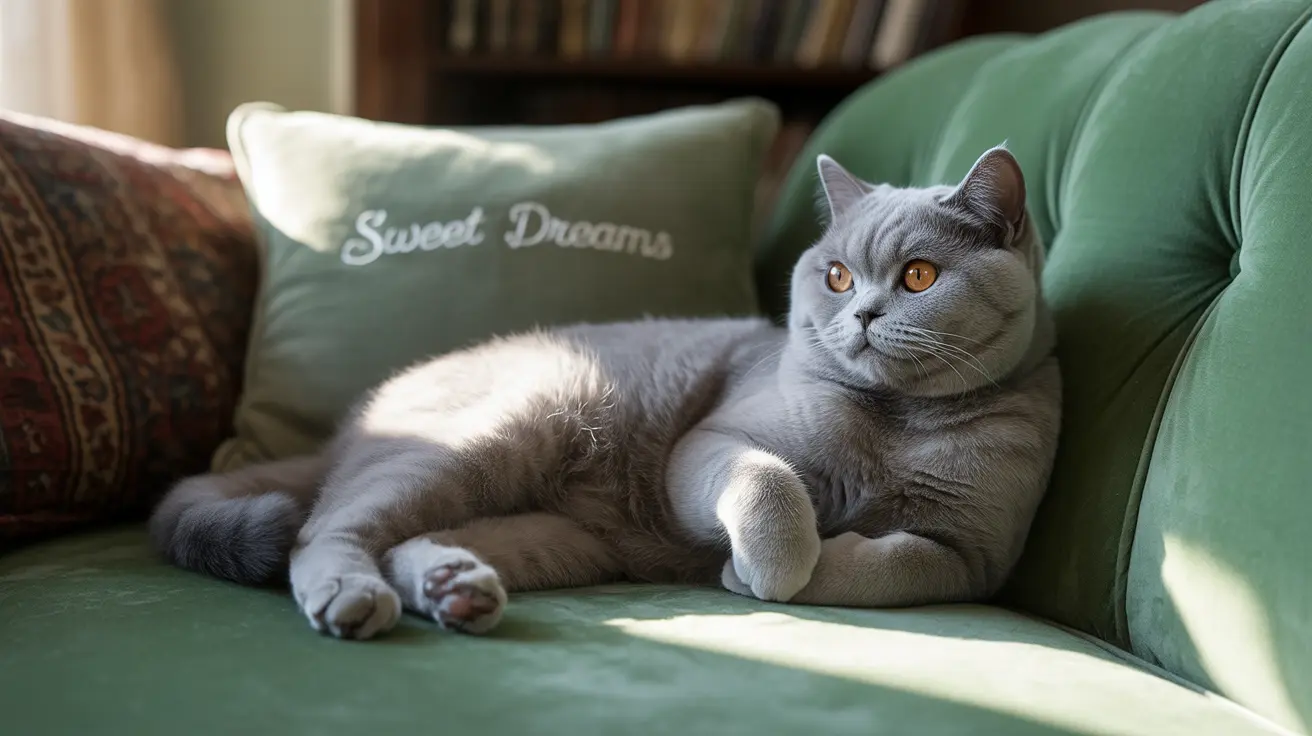Have you ever watched your cat dozing peacefully, hearing a soft rumbling sound and wondering if they're actually purring while asleep? Cats have a fascinating ability to purr during their sleep, a behavior that goes far beyond a simple sign of contentment. This unique feline characteristic reveals much about their complex physiological and emotional world.
In this comprehensive guide, we'll explore the intriguing phenomenon of cats purring during sleep, uncovering the science, reasons, and fascinating insights behind this natural behavior.
How Cats Physically Purr During Sleep
Purring is a remarkable ability rooted in the cat's unique anatomy. The process involves rapid muscle contractions in the larynx (voice box) that occur continuously during both inhalation and exhalation. What makes this even more incredible is that the purring mechanism can function independently of active brain signals, allowing cats to continue purring even as they drift into slumber.
The Mechanics of Feline Purring
Unlike big cats that roar, domestic cats have specialized vocal cord muscles that enable them to produce a continuous, low-frequency vibration. These vibrations can occur at frequencies between 25 and 150 Hertz, which interestingly correspond to frequencies known to promote healing and tissue regeneration.
Why Do Cats Purr While Sleeping?
Cats purr during sleep for several fascinating reasons:
Emotional Comfort and Relaxation
Purring is primarily a sign of contentment. When a cat feels safe, comfortable, and relaxed in their environment, they may continue to purr even while sleeping. This suggests a deep sense of security and well-being.
Self-Healing Mechanism
Scientific research suggests that the low-frequency vibrations produced during purring can have therapeutic effects. These vibrations may help cats heal bones, reduce inflammation, and promote muscle and tendon repair, even during sleep.
Bonding and Social Connection
For cats sleeping near other cats or their human companions, purring can be a form of social bonding. It's a subtle communication method that signals safety and maintains social connections, even in a state of rest.
Sleep Patterns and Purring
Cats are known for their light sleeping patterns, which differ significantly from human sleep. They can remain partially alert even while appearing to be deeply asleep, allowing them to purr, stretch, or respond to slight environmental changes.
REM Sleep and Purring
During Rapid Eye Movement (REM) sleep, cats are more likely to purr. This stage of sleep is when cats are most likely to dream, and the purring might be connected to their dream state or emotional experiences during this phase.
When Purring Might Signal Concern
While purring during sleep is typically normal, persistent or unusual purring could occasionally indicate discomfort or underlying health issues. If your cat's purring seems different from their usual pattern or is accompanied by other unusual symptoms, it's always best to consult with a veterinarian.
Frequently Asked Questions
Why do cats purr in their sleep?
Cats purr during sleep as a sign of contentment, comfort, and potential self-healing mechanisms. It reflects their sense of security and well-being.
Is it normal for cats to purr while sleeping?
Yes, purring while sleeping is entirely normal and usually indicates that your cat feels safe and relaxed.
Can purring during sleep indicate my cat is in pain?
Generally, purring during sleep is not a sign of pain. However, if purring is accompanied by other unusual behaviors or symptoms, consult a veterinarian.
How does a cat physically purr while asleep?
Cats have specialized laryngeal muscles that can generate purring vibrations independently of active brain signals, allowing them to purr even during sleep.
Do cats dream when they purr in their sleep?
Cats are likely to purr during REM sleep, which is associated with dreaming. Their purring might be connected to their dream experiences or emotional state.
Understanding your cat's purring behavior provides a fascinating glimpse into their complex emotional and physiological world. Next time you hear your feline friend purring peacefully in their sleep, you'll appreciate the incredible mechanisms behind this soothing sound.






